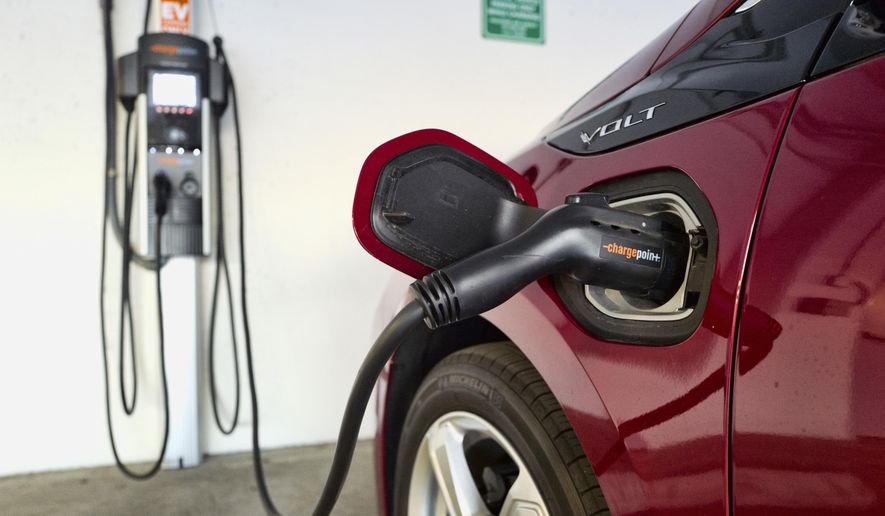The majority of Californians support their state moving toward a 2035 ban on the sale of new gas-powered vehicles but are concerned the cost of going green will be out of reach, according to a new poll.
The survey, which was shared first with The Washington Times, showed that while 62% of Golden State residents are in favor of banning new gas guzzlers to fight climate change, the same number say they won’t be able to afford more expensive electric vehicles.
The findings in the poll by Payless Power, a Texas electricity provider, underscored the economic perils of eliminating gasoline-powered cars, even when people think it’s the right thing to do.
It is cheaper to own and operate an electric vehicle in the long run because of high fuel prices and maintenance costs associated with gas- and diesel-powered engines. The upfront sticker price for going electric, however, is on average $10,000 more. The average electric vehicle costs just under $56,500, compared with the automotive industry standard of just over $46,000, according to 2021 data from Kelley Blue Book.
California’s ambitious plan, which will need official approval from the Biden administration because it goes beyond federal environmental regulations, requires auto manufacturers to meet zero-emission sales targets on a sliding scale. It would mandate that 35% of new vehicles sold in 2026 be electric, followed by 68% by 2030 and 100% by 2035.
More than half of Californians — 53% — also said they were worried about a lack of charging stations close to home. The cost of installing an at-home charging system ranges from hundreds to thousands of dollars.
And given California’s history of rolling electricity outages because of the state’s inadequate power grid, critics of electric vehicles say drivers’ ability to travel anywhere at any time could be jeopardized under the new regulations. Residents were warned amid sweltering temperatures this summer to reduce their usage by setting their thermostats higher and unplugging power-draining devices.
The California Air Resources Board has estimated that the regulations would cut tailpipe emissions by more than 50% by 2040. Now, several states are looking to follow California’s lead. New York, for example, wants to pave the way for a similar ban by 2035.
But while 65% of Californians back instituting the ban nationally, only 34% of non-Californians who were polled support the idea.
Age is a significant factor in determining which drivers feel they should be forced to make the switch.
Younger Americans are more supportive, including 64% of Generation Z, born in 1997 onward, and 54% of millennials, born 1981-1996.
Older drivers are more opposed, with roughly 46% of Gen X, born from 1965 to 1980, feeling “frustrated” or “angry” about California’s decision.
House Republicans have lobbied the Biden administration to reject California’s proposal, offering a preview into the contentious energy and environment policy debates that will be thrust into the spotlight if the GOP regains control of Congress in the Nov. 8 midterm elections.
“We urge you to reject California’s forthcoming request for this waiver due to widespread concerns about the negative impact it will have on the electric grid, the need for additional power generation, the overreliance on foreign adversaries for critical minerals, and the right of Americans to choose for themselves which vehicles they wish to drive,” lawmakers wrote to the Biden administration this week.
More than 150 House Republicans signed the letter.
• Ramsey Touchberry can be reached at rtouchberry@washingtontimes.com.




Please read our comment policy before commenting.